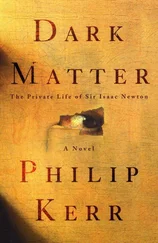Philip Kerr - A Man Without Breath
Здесь есть возможность читать онлайн «Philip Kerr - A Man Without Breath» весь текст электронной книги совершенно бесплатно (целиком полную версию без сокращений). В некоторых случаях можно слушать аудио, скачать через торрент в формате fb2 и присутствует краткое содержание. Год выпуска: 2013, Издательство: Quercus, Жанр: Триллер, на английском языке. Описание произведения, (предисловие) а так же отзывы посетителей доступны на портале библиотеки ЛибКат.
- Название:A Man Without Breath
- Автор:
- Издательство:Quercus
- Жанр:
- Год:2013
- ISBN:нет данных
- Рейтинг книги:4 / 5. Голосов: 1
-
Избранное:Добавить в избранное
- Отзывы:
-
Ваша оценка:
- 80
- 1
- 2
- 3
- 4
- 5
A Man Without Breath: краткое содержание, описание и аннотация
Предлагаем к чтению аннотацию, описание, краткое содержание или предисловие (зависит от того, что написал сам автор книги «A Man Without Breath»). Если вы не нашли необходимую информацию о книге — напишите в комментариях, мы постараемся отыскать её.
A Man Without Breath — читать онлайн бесплатно полную книгу (весь текст) целиком
Ниже представлен текст книги, разбитый по страницам. Система сохранения места последней прочитанной страницы, позволяет с удобством читать онлайн бесплатно книгу «A Man Without Breath», без необходимости каждый раз заново искать на чём Вы остановились. Поставьте закладку, и сможете в любой момент перейти на страницу, на которой закончили чтение.
Интервал:
Закладка:
‘What do the Russian nurses tell you?’
‘Hard to say, sir. There’s none of us Germans that slyuni much Popov and they don’t slyuni any German. We’re understaffed as it is. Half my medical orderlies have just been ordered south-east, to a place called Prokhorovka. Batov was about the only one who could talk with us, at a surgical level.’
‘What’s at Prokhorovka?’
‘No idea, sir. All I know is that it’s near a city called Kursk. But it’s all very secret and I shouldn’t have mentioned it. Our own men weren’t told where they were going. The only reason I found out was because several large boxes of wound dressings were taken from the stores here and someone had written the destination on the side.’
‘There’s no chance that Batov was swept into the same draft as them, I suppose?’
‘Not a chance, sir. There’s no way they’d have pressed an Ivan into service.’
‘Well, I’d better look for him at home, I suppose.’
‘If you see him, tell him to hurry back, sir. We need him more than ever now that we’re so short-staffed.’
It was then I thought to go and look for Batov in the private room where Rudakov was being cared for, but it was empty and the wheelchair in which I had seen him sitting was now gone. The bed didn’t look as if it had been slept in and even the ashtray looked as if it hadn’t been used in a while. I laid my hand on the radio, which had been on when last I’d been in that room, and it was cold. I glanced up at the picture of Stalin but he wasn’t telling. He stared suspiciously at me with his dull dark eyes, and when I put my hand behind him to look for the photograph of the three NKVD men and found it missing, I started to get a bad feeling about things.
I left the hospital and drove quickly to Batov’s apartment building. I rang the bell and knocked on the door but Batov didn’t answer. The floor lady downstairs had an ear trumpet that looked like it had belonged to the Beethoven Museum in Bonn, and she didn’t speak any German, but she didn’t have to; my identification was enough for her to assume I was Gestapo, I suppose – the woman certainly crossed herself enough, as Batov had said she would – and she soon found some keys and let me into Batov’s apartment.
As soon as the floor lady opened the door I knew something was wrong: all of the doctor’s precious books that had been so carefully arranged were now lying on the floor, and sensing I was about to discover something awful – there was a faint smell of sweet and sour decay in the apartment – I took the key and sent the babushka away, then closed the door behind me.
I went into Batov’s drawing room. The tall ceramic stove in the corner was still warm, but Batov’s motionless body was not. He lay face-down on the uncarpeted floor underneath a patchwork quilt of tossed books and newspapers and cushions. In the side of his neck was a wound like a large slice of water melon. His bruised and battered mouth had been stuffed with a sock, and from the number of fingers that were missing from his right hand it was clear that someone had been preparing him to play Ravel’s piano concerto for the left hand on the upright by the window or – more likely perhaps – torturing him methodically: four severed fingers and a thumb were arranged in a vertical series along the mantelpiece like so many cigarette butts. I wondered why he’d lain still and taken it until I saw the hypodermic in his thigh and figured he’d been injected with some sort of muscle relaxant they use in surgery, and by someone who knew what they were doing, too. It must have been just enough to stop him moving but not enough to stop the pain.
Had he given up the information that had prompted this treatment? From the way the apartment had been turned over and the number of fingers on display it seemed unlikely. If someone can stand the loss of more than one finger it can be assumed they could stand the loss of all five.
‘I’m sorry,’ I said aloud, because I had the strong idea that Batov’s suffering and death had been occasioned by the same information he had promised me – the photographic and documentary evidence of exactly what had happened in Katyn Wood. ‘I really am. If only – if only I’d come yesterday, the way I’d planned, then perhaps you’d still be alive.’
Of course it had already crossed my mind that Lieutenant Rudakov’s absence from his room at the SSMA was an indication that he had met a similarly grisly end, but it was now that I started to wonder just how disabled the NKVD man had really been. Could Rudakov have fooled Batov into thinking his condition was perhaps worse than it was? What better way of hiding out from your NKVD colleagues than affecting a mental disability? In which case, wasn’t it perfectly possible that Doctor Batov had been murdered by the very man he’d been trying to protect? And wasn’t life just like that sometimes?
I went into the bedroom. I hadn’t met Batov’s only daughter before; I didn’t even know her name; all I really knew about the girl was her age and the fact that she wouldn’t ever be celebrating her sixteenth birthday or dancing Swan Lake in Paris. As a homicide detective I’d seen plenty of dead bodies, many of them female, and of course it’s fair to say that the war had rendered me even less sensitive than before to the sight of violent death, but nothing prepared me for the appalling sight that greeted me in that bedroom.
Batov’s daughter had been tied to the four corners of the bed and tortured with a knife, like her poor father. Her killer had slit her nose horizontally and cut off both her ears before opening the veins in one of her arms. She was still wearing a pair of rubber overshoes. Very likely she must have arrived back in the apartment after the killer had failed to extract the information he wanted from her father, and he had set to work with his knife on the daughter, whose mouth was similarly stuffed with a sock to stifle her loudest screams. But where I wondered were her ears?
Eventually I found both of them in the breast pocket of the dead man’s jacket, as if he had brought them into the room, one after the other, before Batov had told him what exactly he wanted to know.
A quick glance in the other bedroom confirmed that Batov had indeed talked. A picture of Lenin had been taken down from the wall and was now leaning against it. The space it had covered was just raw brickwork, with several of the bricks torn out like the centre of a jigsaw puzzle. There was just enough room in this rectangular hiding place – which was about the height and width of a letterbox – to have hidden the ledgers and pictures Doctor Batov had promised to give to me.
In the bathroom I dropped my trousers and sat down on the toilet to do some thinking with a couple of cigarettes. Without the bloody distractions of the two bodies it was easier to reflect upon what I knew and what I thought I knew.
I knew that they had both been dead for not much more than a day: Batov’s own body had been covered with books and newspapers, which meant that access for female houseflies had been more difficult, but already masses of tiny eggs that had yet to hatch into maggots were covering the girl’s eyelids. Depending on the temperature, fly eggs usually hatched into larvae within twenty-four hours – especially when a body was found indoors, where things are warmer, even in Russia. All of which meant they had probably died the previous afternoon.
I knew it was a waste of time asking the floor lady if she’d seen or heard anything. For one thing my Russian wasn’t equal to the task of an interrogation, and for another her ear trumpet hardly encouraged the prospect of success. As a detective, I’d seen more promising witnesses in a mortuary. Not that I was feeling a lot like a homicide detective since murdering Martin Quidde.
Читать дальшеИнтервал:
Закладка:
Похожие книги на «A Man Without Breath»
Представляем Вашему вниманию похожие книги на «A Man Without Breath» списком для выбора. Мы отобрали схожую по названию и смыслу литературу в надежде предоставить читателям больше вариантов отыскать новые, интересные, ещё непрочитанные произведения.
Обсуждение, отзывы о книге «A Man Without Breath» и просто собственные мнения читателей. Оставьте ваши комментарии, напишите, что Вы думаете о произведении, его смысле или главных героях. Укажите что конкретно понравилось, а что нет, и почему Вы так считаете.












